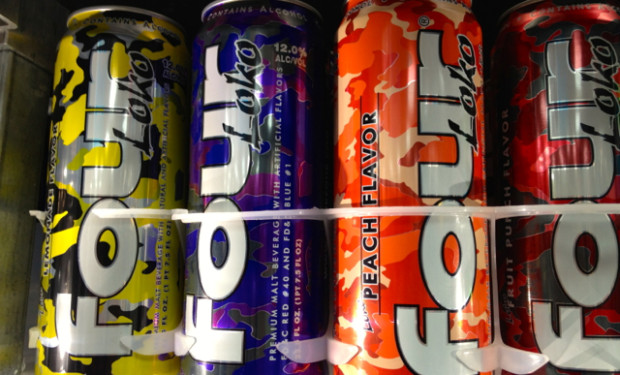Makers of Four Loko Reconfigure Cans in Settlement with FTC
Four Loko is a fruit-flavored, alcoholic drink popular on college campuses because of its low cost and high alcohol content. The beverage was invented by three Ohio State University students in 2005 and has been nicknamed “blackout in a can.” In the past few years, the beverage has received extensive media attention following several alcohol-related incidents.
In October 2010, nine college students in Washington State were hospitalized after drinking Four Loko. Officials initially believed the students’ sicknesses were caused by ingesting date rape drugs. In the same month, 23 college students in New Jersey were hospitalized for alcohol poisoning after drinking Four Loko.
Another incident in November 2010 led to the conviction of a Brooklyn motorist. A jury found Anel Kolenovic, now 25, guilty of manslaughter. After consuming a Four Loko, Kolenovic sped through a red light, collided with another vehicle and killed the driver. In late March 2013, Kolenovic received a sentence of up to 12 years in prison.
Following these and other events, several states including Washington, Michigan, and New York banned the sale of energy drinks containing both alcohol and caffeine. Many claim the drinks are dangerous because a stimulant (caffeine) is mixed with a depressant (alcohol), and when individuals consume caffeine with alcohol, they do not feel the effects of alcohol as strongly because the caffeine is keeping them more alert.
After convenience stores and grocers pulled Four Loko off their shelves, the beverage appeared on eBay and Craigslist for an inflated price, but eventually the drink was no longer available anywhere. “Faux” Loko recipes also surfaced, but the recipes just weren’t the same.
On November 18, 2010, the U.S. Food and Drug Administration (FDA) declared that it would be illegal for manufacturers to add caffeine to alcoholic beverages. The FDA sent a letter to several companies including Phusion Projects, LLC, the maker and distributor of Four Loko. The FDA declared that Four Loko and similar products were unsafe and could lead to “hazardous and life-threatening situations.” Phusion Projects was forced to reformulate its product and the reformulation eliminated caffeine, guarana, and taurine. This reformulated Four Loko is now available in 48 states.
Although Phusion Projects reformulated its product, the company faced another problem shortly thereafter. In early October 2011, the Federal Trade Commission (FTC) brought charges against Phusion, alleging deceptive marketing practices for failing to properly disclose the alcohol content in its beverages. In its advertising, the company had implied that a supersized 23.5-ounce can of Four Loko was equal to one or two regular 12-ounce beers. However, the FTC determined that the can contained up to 12 percent alcohol, and was actually the equivalent of four to five beers.
An original proposed order against Phusion Projects and co-founders Jaisen Freeman, Christopher Hunter, and Jeffrey Wright was accepted for public comment. The FTC received more than 250 public comments about the proposal. Commenters were informed that the FTC did not have jurisdiction to ban Four Loko or force the company to limit the size or alcohol content of the product.
The final order included two specific, required changes for Phusion Projects to implement. First, Phusion would be required to seek approval from the U.S. Department of Treasury’s Alcohol and Tobacco Tax and Trade Bureau (TTB) to put an Alcohol Facts panel on the back of Four Loko, or any other malt beverage containing more than two servings of alcohol. After receiving TTB approval, Phusion had 90 days to place the Alcohol Facts panel on its product. The panel would disclose the container size, percentage alcohol by volume, number of servings in the container, and serving size in fluid ounces. In addition, Phusion would also have to redesign its cans for drinks containing more than 2.5 servings of alcohol so that they can be resealed for consumption at a later sitting. All of these changes were mandated to be completed within six months.
Jaisen Freeman, co-founder of Phusion Projects announced, “While we do not agree with the FTC’s allegations regarding these issues, we consider this agreement a practical way to move forward. We share a common interest with the FTC in providing consumers with information and packaging options to help them make informed, responsible decisions.”
During public comment, the National Beer Wholesalers Association, a powerful lobbying group, wrote a letter, strongly opposing the agreement between Phusion Projects and the FTC. In its letter, the Association commented, “The label contemplated by the proposed settlement could actually serve to entice consumers, especially younger ones seeking high-alcohol, low-priced products, to possibly over consume these products.”
But the reconfigured cans have yet to hit the shelves. Only time will tell whether the addition of an Alcohol Facts panel will increase awareness and deter alcohol-related incidents, or whether the panel will encourage consumers to drink irresponsibly.





